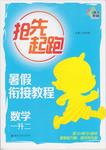题目内容
Five years ago, David Smith wore an expensive suit to work every day. “I was a clothes addict,” he jokes. “I used to carry a fresh suit to work with me so I could change if my clothes got wrinkled.” Today David wears casual clothes—khaki pants and sports shirt—to the office. He hardly ever wears a necktie. “I’m working harder than ever,” David says, “and I need to feel comfortable.”
More and more companies are allowing their office workers to wear casual clothes to work. In the United States, the change from formal to casual office wear has been gradual. In the early 1990s, many companies allowed their employees to wear casual clothes on Friday, but only on Friday. This became known as “dress-down Friday” or “casual Friday”. “What started out as an extra one-day-a-week benefit for employees has really become an everyday thing.” said business consultant Maisly Jones.
Why have so many companies started allowing their employees to wear casual clothes? One reason is that it’s easier for a company to attract new employees if it has a casual dress code. “A lot of young people don’t want to dress up for work,” says the owner of a software company, “so it’s hard to hire people if you have a conservative dress code.” Another reason is that people seem happier and more productive when they are wearing comfortable clothes. In a study conducted by Levi Strauss Company, 85 percent of employers said that they believe that casual dress improves employee morale(士气). Only 4 percent of employers said that casual dress has a negative effect on productivity. Supporters of casual office wear also argue that a casual dress code helps them save money. “Suits are expensive, if you have to wear one every day,” one person said. “For the same amount of money, you can buy a lot more casual clothes.”
1.David Smith refers to himself as having been “a clothes addict,” because __________.
|
A.he often wore khaki pants and a sports shirt |
|
B.he couldn’t stand a clean appearance |
|
C.he wanted his clothes to look neat all the time |
|
D.he didn’t want to spend much money on clothes |
2.David Smith wears casual clothes now, because __________.
|
A.they make him feel at ease when working |
|
B.he cannot afford to buy expensive clothes |
|
C.he looks handsome in casual clothes |
|
D.he no longer works for any company |
3.According to this passage, which of the following statements is FALSE?
|
A.Many employees don’t like a conservative dress code. |
|
B.Comfortable clothes make employees more productive. |
|
C.A casual clothes code is welcomed by young employees. |
|
D.All the employers in the U.S. are for casual office wear. |
4.According to this passage, which of the following statements is TRUE?
|
A.Company workers started to dress down about twenty years ago. |
|
B.Dress-down has become an everyday phenomenon since the early 1990s. |
|
C.“Dress-down Friday” was first given as a favor from employers. |
|
D.Many workers want to wear casual clothes to impress people. |
5.In this passage, the following advantages of casual office wear are mentioned except __________.
|
A.saving employees’ money |
|
B.making employees more attractive |
|
C.improving employees’ motivation |
|
D.making employees happier |
1.C
2.A
3.D
4.C
5.B
【解析】文章讲述了在美国越来越多的公司允许员工穿休闲装,并分析了这种情况的原因。
1.C 推理题。根据第一段I used to carry a fresh suit to work with me so I could change if my clothes got wrinkled.可知他非常在意衣服的整洁。故C正确。
2.A 细节题。根据第一段最后一句I need to feel comfortable.可知A正确。
3.D 细节题。根据倒数4,5行Only 4 percent of employers said that casual dress has a negative effect on productivity.可知D符合要求,并不是所有的员工都支持穿休闲装。
4.C 细节题。根据第2段What started out as an extra one-day-a-week benefit for employees has really become an everyday thing.可知C正确。
5.B 根据文章最后一段可知让员工穿休闲装的原因ACD都提及了,唯独没有提到B,故B符合要求。

 数学奥赛暑假天天练南京大学出版社系列答案
数学奥赛暑假天天练南京大学出版社系列答案 南大教辅抢先起跑暑假衔接教程南京大学出版社系列答案
南大教辅抢先起跑暑假衔接教程南京大学出版社系列答案